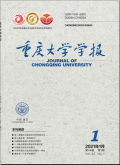重庆大学学报2024,Vol.47Issue(6):103-117,15.DOI:10.11835/j.issn.1000.582X.2024.06.011
可控电感在WPT系统动态性能的优化方法
Dynamic performance optimization method of WPT system based on controllable inductor
摘要
Abstract
The SS Buck-WPT system,comprised of a buck converter and a basic SS-type wireless power transfer circuit,has gained widespread adoption in inductive wireless power transmission due to its structural superiority,control methods,and effectiveness. However,this system fails to meet the responsiveness requirements of time-varying systems due to its poor dynamic characteristics. In practical applications,it exhibits significant overshoot and oscillation during startup,instability when subjected to varying load resistances,and sharp fluctuations in primary resonance current under light conditions. To address those dynamic challenges,this paper proposes a SS-type Buck-WPT system based on controllable inductance. Firstly,controllable inductance was thoroughly analyzed to understand the principle of adjustable inductance,and then modeled in COMSOL to verify the findings. Mathematical modeling analysis of the SS Buck-WPT system was conducted,with the system state space equation derived by considering the SS WPT system as the load of the buck converter. The system was described using two-dimensional phase trajectories to simplify the analysis. A phase trajectory operation law during start-up was proposed,and the pre-buck circuit was improved by replacing the conventional inductor with a controllable one,allowing for stable operation with minimal overshoot during startup. The PI algorithm was used to maintain constant current despite load changes,ensuring expected phase trajectory behavior and rapid return to steady-state operation with real-time control of inductance. Excessive primary resonant current was mitigated by cascading the controlled inductance with the SS in the primary circuit,adjusting the inductance automatically to keep current within permissible values. To validate the proposed method,a prototype was implemented in Simulink. Results show that this strategy significantly improves system dynamic performance and tolerance to varying loads compared to traditional methods.关键词
无线电能传输/动态性能优化/可控电感/相轨迹规划Key words
wireless power transfer/dynamic performance optimization/controllable inductor/phase trajectory planning分类
信息技术与安全科学引用本文复制引用
凌荣光,何磊杰,刘巧,孟繁超,叶佳青,唐春森..可控电感在WPT系统动态性能的优化方法[J].重庆大学学报,2024,47(6):103-117,15.基金项目
国网浙江省电力有限公司科技项目(B311NB210005).Supported by State Grid Zhejiang Electric Power Co.,Ltd.Technology Project(B311NB210005). (B311NB210005)

